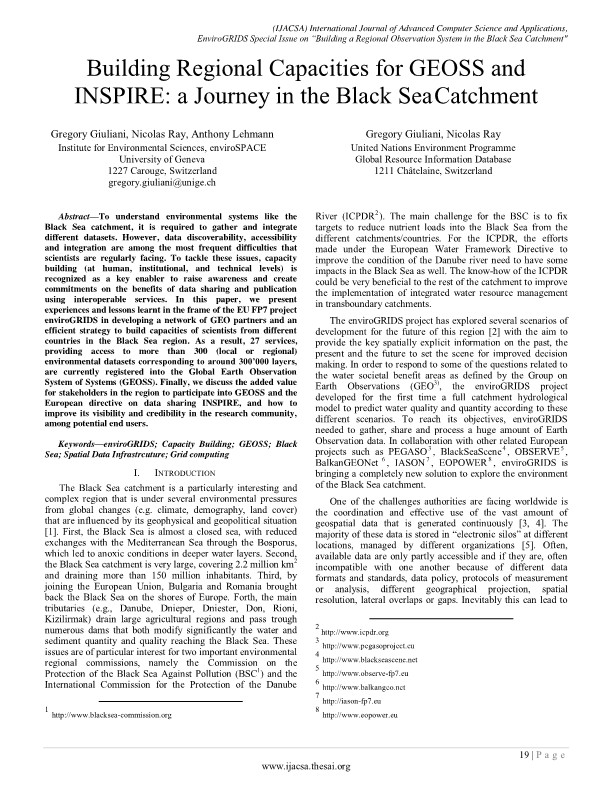Resource
Building regional capacities for GEOSS and Inspire: a journey in the Black Sea Catchment.
Description
To understand environmental systems like the Black Sea catchment, it is required to gather and integrate different datasets. However, data discoverability, accessibility and integration are among the most frequent difficulties that scientists are regularly facing. To tackle these issues, capacity building (at human, institutional, and technical levels) is recognized as a key enabler to raise awareness and create commitments on the benefits of data sharing and publication using interoperable services. In this paper, we present experiences and lessons learnt in the frame of the EU FP7 project enviroGRIDS in developing a network of GEO partners and an efficient strategy to build capacities of scientists from different countries in the Black Sea region. As a result, 27 services, providing access to more than 300 (local or regional) environmental datasets corresponding to around 300’000 layers, are currently registered into the Global Earth Observation System of Systems (GEOSS). Finally, we discuss the added value for stakeholders in the region to participate into GEOSS and the European directive on data sharing INSPIRE, and how to improve its visibility and credibility in the research community, among potential end users.